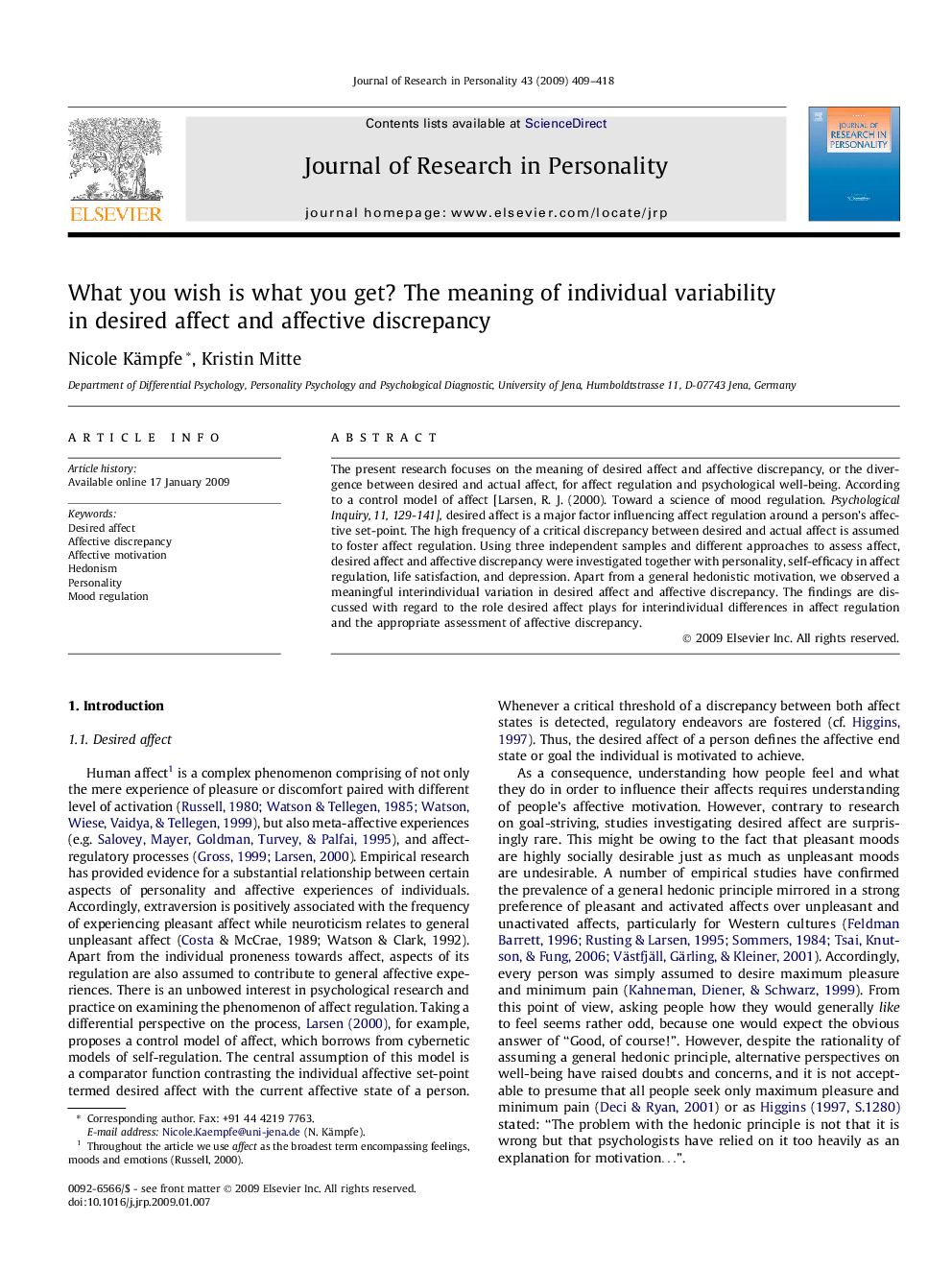| Article ID | Journal | Published Year | Pages | File Type |
|---|---|---|---|---|
| 951762 | Journal of Research in Personality | 2009 | 10 Pages |
The present research focuses on the meaning of desired affect and affective discrepancy, or the divergence between desired and actual affect, for affect regulation and psychological well-being. According to a control model of affect [Larsen, R. J. (2000). Toward a science of mood regulation. Psychological Inquiry, 11, 129-141], desired affect is a major factor influencing affect regulation around a person’s affective set-point. The high frequency of a critical discrepancy between desired and actual affect is assumed to foster affect regulation. Using three independent samples and different approaches to assess affect, desired affect and affective discrepancy were investigated together with personality, self-efficacy in affect regulation, life satisfaction, and depression. Apart from a general hedonistic motivation, we observed a meaningful interindividual variation in desired affect and affective discrepancy. The findings are discussed with regard to the role desired affect plays for interindividual differences in affect regulation and the appropriate assessment of affective discrepancy.
